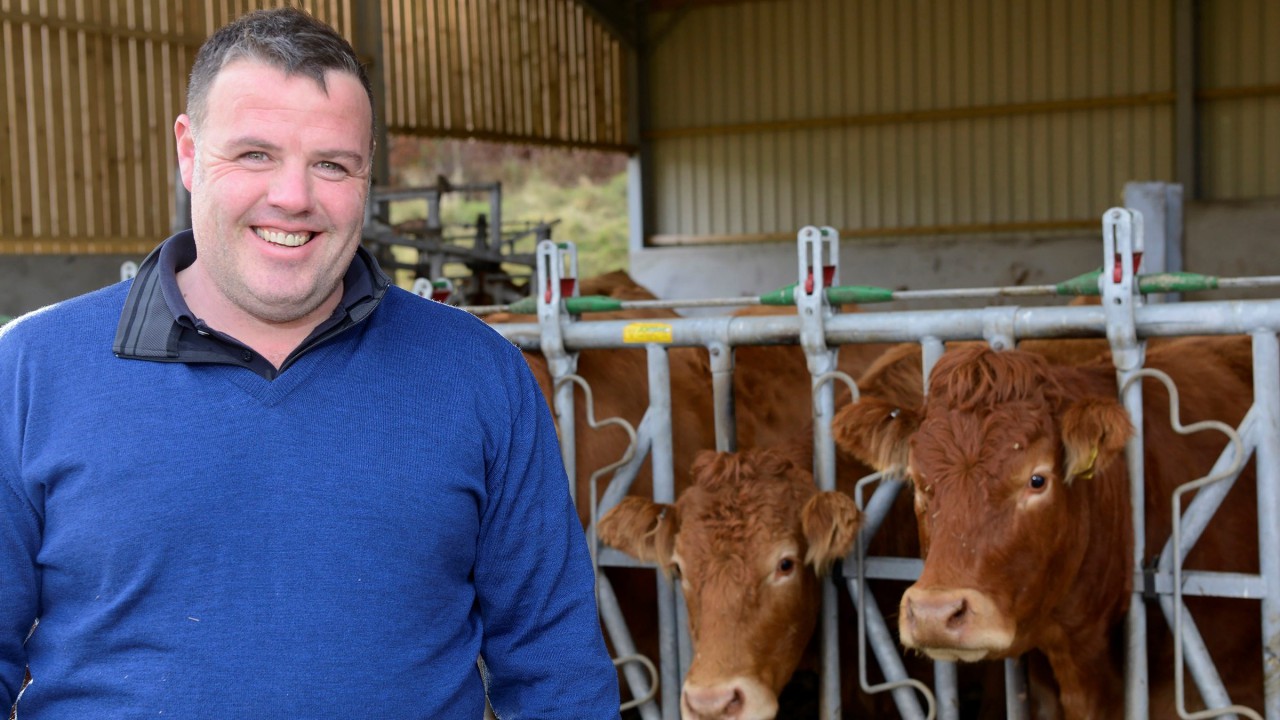The benefits of investing in genetics and EID technology will be showcased at the next Lochaber Monitor Farm meeting on Thursday, January 31.
The free meeting, which will be held at the Nevis Centre in Fort William, will focus on some of the key areas for developing the suckler industry; selecting the correct genetics in your stock, bull management and how EID technology can help to monitor stock performance and aid management decisions.
Getting the right genetics is essential for establishing a sustainable suckler herd. At the meeting, Alison Glasgow, technical manager and geneticist from the British Limousin Cattle Society will help the group to explore the genetics best suited to for west coast store cattle producers.
Glasgow will outline new developments on the genetic horizon and how best to manage breeding bulls after purchase.
Strone farm, Lochaber’s monitor farm, near Fort William is run by father and son team Malcolm and Chris Cameron.
They are passionate about their herd of 50 pure Limousin cows and have carefully selected bulls on their maternal traits such as ease of calving and milk.
“We find the pure Limousin cow is very adaptable, she calves easily and even if not grazed on the best of grass will maintain her condition and get back in calf,” commented Malcolm Cameron.
Also at the meeting, Jane Thomson from Shearwell Data will provide an update on proposals to bring in compulsory cattle EID from January 2020.
Ms. Thomson will also show how EID technology can improve the management of suckler herds in the west.
“Performance recording is a really effective way for cattle farmers to identify the best, and the worse, performing animals and make informed choices about which animals to retain in the herd,” she said.
“The technology behind EID tags, data collectors and the associated software programmes ensures that production data can be stored quickly and accurately and is a huge benefit to farmers looking to performance-manage their herd more effectively.”
Expansion
In 2018, the Camerons took on a tenancy of an extra 42ha of grazing land and some sheds just 11 miles from the home farm at Strone.
After discussion with the management group, they decided to trial finishing all their own male lambs indoors on ad-lib creep feeding.
The weights of the lambs were also monitored regularly. The final costs and income from these lambs have been collected and the final results and conclusions from this trial will be presented at this meeting.
The Lochaber Monitor Farm is one of nine monitor farms that have been established around Scotland in a joint initiative by Quality Meat Scotland (QMS) and AHDB Cereals & Oilseeds.
The aim of the programme, which is funded by the Scottish Government, is to help improve the productivity, profitability and sustainability of Scottish farm businesses.
The meeting on January 31 will begin at noon and finish at around 4:00pm. Lunch will be provided. To book your attendance, contact facilitators Niall Campbell or George Gauley via email on: [email protected].

